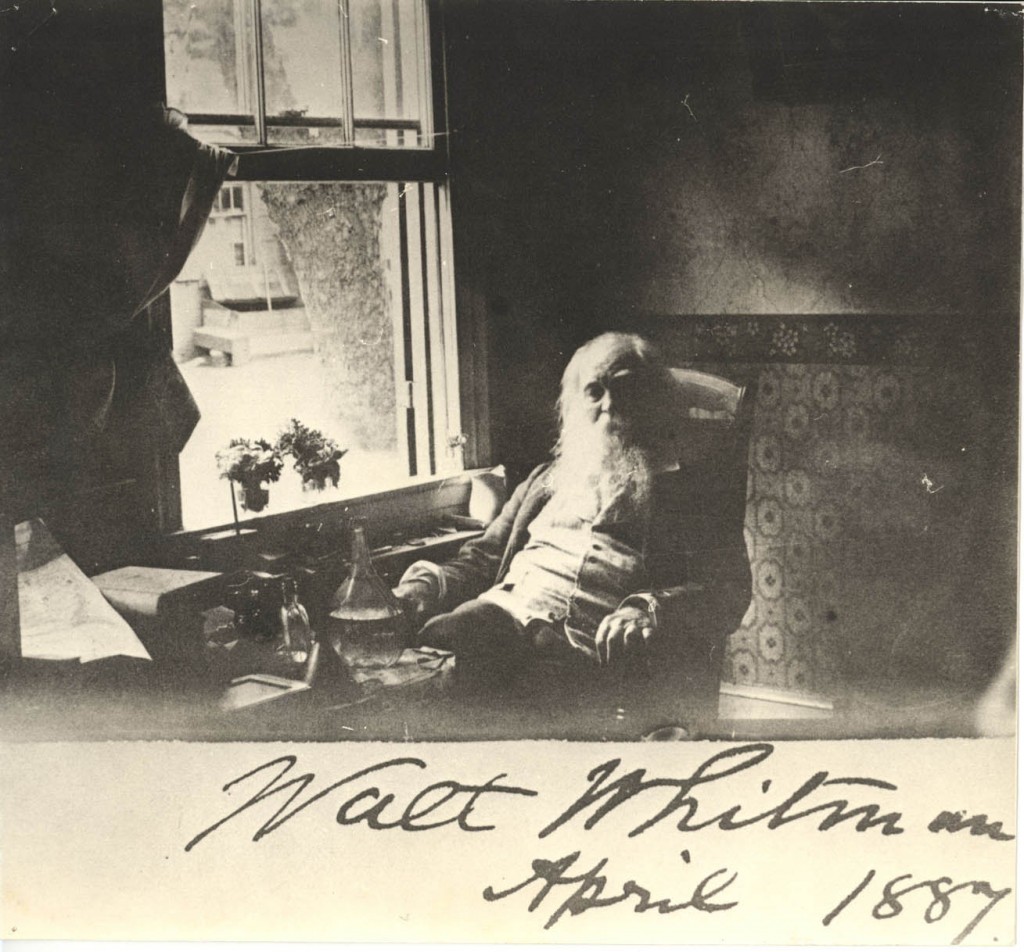Ginger was used in nineteenth-century medicine to treat everything from scurvy to cholera to impotence to lead poisoning. And, as in TR Hummer’s poem “Whitman’s Pantry,” as a digestion aid.
Dried beans in a muslin sack, tied shut with greasy string.
An ounce of ginger root to brew digestif,
Procured on physician’s advice from an “Oriental” grocer
at remarkable expense, desiccated now almost
Past recognition….
(Please continue to read Whitman’s Pantry | Kenyon Review Journal)
According to the 1880 Cyclopaedia of practical receipts and collateral information in the arts, “Ginger is an aromatic stimulant and stomachic, very useful for flatulence and spasms of the stomach and bowels, and in loss of appetite and dyspepsia, arising from debility, or occurring in old and gouty subjects.”
Whitman (or more likely his pharmacist) might have brewed up something like “Brama elixir–Genuine Asiatic Stomach Bitter.” The recipe: “Cardamoms, cinnamon, cloves, of each 15 grammes; galangal, ginger, zedoary, pepper, of each 30 grammes; wormwood oil, 15 drops; 90 per cent. spirit, 830 grammes; water, 330 grammes; digest and filter.” (Galangal is “blue ginger”; zedoary is an unrelated root that tastes similar to ginger.)
Cyclopaedia, by Arnold James Cooley, via google books

Photo via whitmanarchive.org